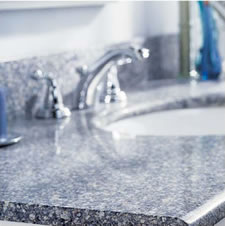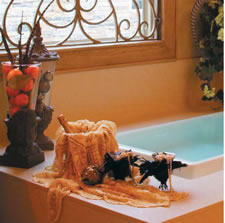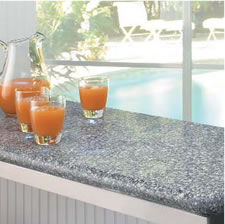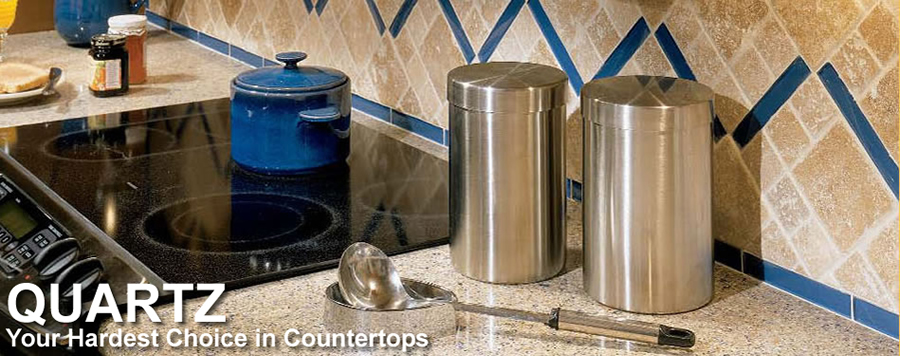QUARTZ Countertops Beat Granite in Strength & More
Time is precious. Whether you’re a young mother trying to keep up with preschoolers, a busy career woman or an active retiree, you’re probably looking for ways to carve out more time to do the things that matter most to you.
Perhaps that’s why quartz surfacing has become the fastest-growing countertop material in the United States. With the distinctive depth and glimmering radiance of natural stone, this material offers easier maintenance than granite, marble or limestone.
Engineered Quartz
Ninety-three percent of this surface is real quartz, compared to a quartz content of 40% or less found in natural granite. According to Monica Canales, Marketing Director for Silestone® by Cosentino, one of the leading companies marketing natural quartz in the United States, only three natural materials – diamonds, topaz and sapphires – are harder than quartz. This gives quartz surfaces a strength that is less susceptible than granite to scratches, chips and cracks when keys, knives or toys are dropped on the surface.



Not only does natural granite contain less quartz than its manufactured counterpart, it also has air pockets which make it a porous product, requiring some form of sealant for use as a countertop (applied every year or two). In contrast, air pockets are removed during the manufacturing process of quartz aggregates, when quartz particles are combined with pigments and polyresins in a vacuum compression system. This creates a non-porous surface, which according to Canales will not be penetrated by soft drinks, wine, vinegar, olive oil, lemon juice, ink, crayons, makeup, perfume, hair spray or nail polish. “No sealing is necessary. Clean-up is simple–just warm, soapy water or basic household cleaners. It is really a hassle-free surface,” Canales concludes. Its non-absorbency also inhibits the growth of bacteria, mold and mildew, making it an excellent choice for food preparation surfaces.
Popular for over a decade in Europe, quartz surfaces were introduced in North America a few years ago. Most of the product sold here is manufactured in Canada, Israel and Spain. Originally used for kitchen countertops and backsplashes, quartz surfacing has branched out to bathroom vanities, tub and fireplace surrounds, table tops, wet bars, wall cladding and floor tiles (which can be combined to create patterns).
Natural Looks
Not only will engineered quartz hold up over the years, its natural looks won’t go out of style. Its colors and patterns are more consistent than natural stone, which means homeowners can rely on the showroom color to be true to what is delivered…and they can match different elements perfectly. Cosentino alone currently offers 45 colors of its Silestone® surfacing, in a wide variety of styles – from solid to particulate patterns, from sparkling to muted. Cambria®, CaesarStone® and DuPont’sTM Zodiaq® offer their own choices.
It should be noted that large applications may require seams comprised of an epoxy color matched to the rest of the stone. (This would be true of any stone product, but not true of solid surface products that can be melted together.)
Although these quartz surfaces are extremely durable, they are not indestructible. It is possible to damage them if force is applied to a sharp object. While they resist damage from heat, the use of a hot pad or trivet is recommended. (All natural stone surfaces can suffer thermal shock from sudden temperature changes or heat build-up in a small area.) Caustic chemicals, such as oven cleaners, drain openers and floor strippers may also damage them. And long-term, direct exposure to sunlight can cause slight fading.
As with any type of countertop material, the cost of quartz surfaces will vary according to grade and style. But considering the multitude of options out there today, it just might be the wisest of all your hard choices
